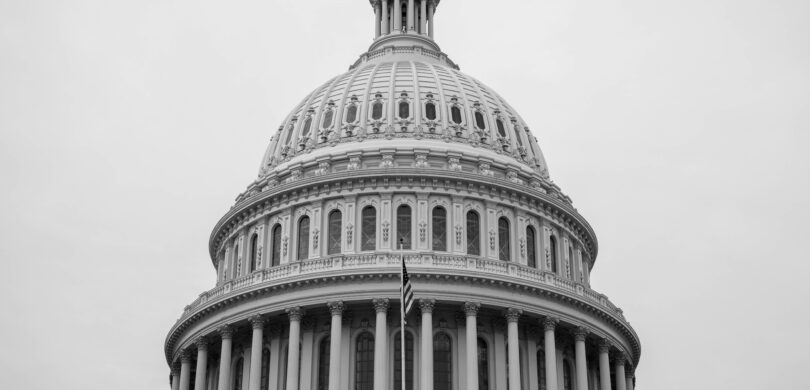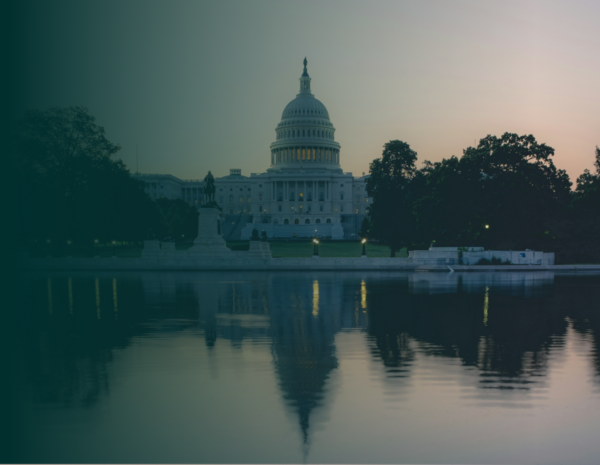According to the Declaration of Independence, people are born with “certain unalienable Rights, [and] among these are Life, Liberty and the pursuit of Happiness.” The Bill of Rights expanded on this idea, listing rights that the government could not violate. Over time, the U.S. Constitution has been amended to add more civil liberties.
What are these civil liberties, and how do we define them? What controversies surround them today? Let’s dive a little deeper into the history of the Bill of Rights and other constitutional amendments.
What Are Civil Liberties?
Civil liberties protect individuals against government actions that infringe upon certain fundamental rights. The Constitution established several civil liberties, including freedom of speech, freedom of religion, and the right to bear arms.
A related term, civil rights, refers to equal treatment under the law and freedom from discrimination. If the government violates the civil liberties of only certain groups of people, this becomes a violation of their civil rights. The Constitution also protects civil rights; namely, the equal right to vote.
The Historical Background of Civil Liberties in the U.S.
Many British settlers came to America seeking civil liberties like religious and political freedom. Early colonial charters, which acted as constitutions for the British colonies in America, recognized and protected some basic rights. Depending on the colony, they included protections for colonists’ rights to due process, trial by jury, and freedom of religion.
In 1215, King John of England was facing a rebellion by unhappy barons. In an attempt to end it, he signed a charter of rights known as the Magna Carta. This became a foundational document in English law. Together with the English Bill of Rights of 1689, the Magna Carta influenced the writers of the U.S. Constitution and Bill of Rights. They helped inspire the right to petition government, the right to trial by jury, the right to keep and bear firearms, and a ban on cruel and unusual punishment.
Colonists also learned from Enlightenment philosophers of the 17th and 18th centuries, including Montesquieu, John Locke, William Blackstone, and Jean Jacques Rousseau. These philosophers discussed fundamental rights, including Locke’s influential “right to life, liberty, and property.” They stressed the importance of limiting the power of governments so they do not violate these fundamental freedoms.
In the decades leading up to the American Revolutionary War, many colonists argued that the king and British Parliament had denied them their civil liberties. This led them to declare independence in 1776.
The Bill of Rights
When the U.S. Constitution was written in 1787, at least nine of the 13 original states had to ratify it for it to become law. Supporters, called federalists, campaigned in favor of the Constitution. Anti-federalist opponents said it did not do enough to protect the people’s rights and civil liberties. Some states agreed to ratify the Constitution only if amendments with these protections were added.
James Madison proposed a series of amendments addressing their concerns during the first Congress in 1789. He had opposed a federal bill of rights, but became convinced that it was needed for the new Constitution to succeed. Congress approved 12 amendments, and the states ratified 10 that would become the United States Bill of Rights.
The Bill of Rights only limited the federal government’s power at first, but Supreme Court cases later extended most of the Bill of Rights to the states.
The Ten Original Amendments
The original 10 amendments of the Bill of Rights protect rights involving personal liberty and justice. They also address rights and governmental powers that are not named in the Constitution.
Liberty
The first four amendments of the Bill of Rights pertain to liberty. These include:
- The 1st Amendment, which protects the freedom of religion, the freedom of speech, the freedom of the press, the right to peaceably assemble, and the right “to petition the government for a redress of grievances” (complain to and make requests of government).
- The 2nd Amendment, which protects “the right of the people to keep and bear arms,” citing the importance of “a well-regulated militia.”
- The 3rd Amendment, which prohibits the quartering (lodging) of soldiers in private homes without the homeowners’ consent.
- The 4th Amendment, which protects people against unreasonable searches and seizures of themselves or their property. It says warrants must be specific, “supported by oath or affirmation,” and based on probable cause.
Justice
Amendments five through eight set forth guidelines surrounding the justice system.
- The 5th Amendment requires an indictment by grand jury for major crimes, with an exception for active military. It also protects people from being tried more than once for the same criminal offense, known as double jeopardy. It protects people from being forced to incriminate themselves and says that people must not “be deprived of life, liberty, or property without due process of law. Finally, it prohibits the government from taking private property for public use – called eminent domain – without just compensation.
- The 6th Amendment protects the right to a speedy and public trial by an impartial jury in criminal cases. It ensures the accused person’s right to hear the charges against them. It also says people accused of a crime have the right to face the accusing witnesses, call witnesses of their own, and be defended by a lawyer in court.
- The 7th Amendment requires jury trials for civil cases and prohibits courts from overturning a jury’s findings of fact.
- The 8th Amendment bans excessive bail, excessive fines, and cruel and unusual punishments.
Other
The final two amendments in the Bill of Rights address discrete topics.
- The 9th Amendment says people have other rights that are not enumerated, or listed, in the Constitution. These unenumerated rights have been interpreted to include rights to travel, vote, marry, have privacy, and make decisions about one’s own body.
- Finally, the 10th Amendment says that any powers not explicitly given to the federal government or prohibited to the states are reserved to the states – or the people.
Subsequent Amendments
The U.S. Constitution can be amended by a two-thirds vote of both houses of Congress or by request of two-thirds of the state legislatures. So far, no amendments have been proposed using the second method. The states have ratified 27 constitutional amendments proposed by Congress.
Civil Rights Amendments
Various amendments expanded, protected, or guaranteed certain civil rights for Americans. These included:
- The 13th Amendment (1865) ended slavery nationwide, except as punishment for a crime.
- The 14th Amendment passed in 1870. It grants citizenship to “all persons born or naturalized in the United States.” It also prohibits states from violating the “privileges or immunities of citizens of the United States.” It states that states may not “deprive any person of life, liberty, or property, without due process of law” or deny them equal protection of the law. Finally, it disqualifies anyone from federal office, state office, or the Electoral College who has “engaged in insurrection or rebellion against the [United States], or given aid or comfort to the enemies thereof.”
- The 15th Amendment (1870) prohibited denying the right to vote based on race, color, or “previous condition of servitude.” Black Americans and others still faced discriminatory barriers such as poll taxes for nearly a century.
- The 19th Amendment, passed in 1920, granted women the right to vote.
- Passed in 1961, 23rd Amendment gave residents of Washington, D.C., the right to vote and to send electors to the Electoral College.
- The 24th Amendment banned poll taxes. It passed in 1964.
- Finally, the 26th Amendment, passed in 1971, set the national voting age to 18, lowering it from 21 in most states.
Governmental Power Amendments
Various amendments clarified, expanded, or restricted government power. These included:
- The 11th Amendment passed in 1795. It says that federal courts cannot hear lawsuits against a state by people who are not citizens of that state.
- The 16th Amendment (1913) gave Congress the power to set and collect a federal income tax without apportioning it among the states.
- Passed in 1919, 18th Amendment banned the manufacturing or sale of alcohol, beginning the Prohibition era.
- The 21st Amendment, passed in 1933, repealed the 18th Amendment, ending Prohibition.
- Finally, the 27th Amendment passed in 1992. It says that any law changing the salaries of members of Congress must take effect after the start of a new Congressional session. It was passed by Congress in 1789 but was not ratified until 1992.
Amendments About Terms, Elections, and Succession
Various amendments revised the standards surrounding terms, elections, and succession. These included:
- The 12th Amendment passed in 1804. It requires electors in the Electoral College to cast votes for both president and vice president. One of those votes must go to a candidate who does not live in the elector’s state.
- Passed in 1913, the 17th Amendment requires senators to be elected by direct popular vote instead of by state legislature. It also allows state legislatures to give their governors the power to make temporary Senate appointments.
- The 20th Amendment (1933) set the beginning of a new president’s term on January 3 and a new Congress’ term on January 20. It also says that if the president-elect dies before being inaugurated, the vice president-elect should become president.
- The 22nd Amendment, passed in 1951, limits presidents to two terms, including partial terms if more than half completed.
- Finally, the 25th Amendment passed in 1967. It says that the vice president fully becomes president if the president dies, resigns, or is removed from office. It also provides a way to fill a vice presidential vacancy and allows the vice president to temporarily perform the president’s duties if the president is unable to do so.
Modern Controversy Over Civil Liberties
Civil liberties continue to change, expand, and sometimes shrink today through new laws and court interpretations. Here are just a few examples of modern controversies.
Social Media
Social media has sparked debate about the freedom of speech guaranteed by the 1st Amendment. Should large social media companies, as private businesses, be able to censor protected speech or “deplatform” users who do not follow certain rules? Should the government be able to regulate misinformation on these platforms?
Gun Control
Mass shootings in the United States often result in calls for stronger gun control laws. Second Amendment advocates raise concerns about whether certain restrictions violate the right to bear arms.
Data Privacy
The right to privacy, established by the Supreme Court based on the 5th, 9th, and 14th amendments, is at the heart of several modern issues. Companies’ collection of vast amounts of data concerns privacy advocates, especially when this data is turned over to law enforcement.
Reproductive Rights
In 2023, the Supreme Court overturned its 1973 in ruling Roe. v. Wade, which said the decision to have an abortion was included in the right to privacy. In the case Dobbs v. Jackson Women’s Health Organization, it ruled that the right to abortion was not “deeply rooted in this nation’s history and tradition,” and thus, it was not protected as an unenumerated right. This could lead to challenges of access to birth control, same-sex marriage rights, and more.
Plural for Public Policy Work
At Plural, we help concerned constituents and public policy professionals alike understand the laws that impact their daily lives. With Plural, you’ll:
- Access superior public policy data
- Be the first to know about new bills and changes in bill status
- Streamline your day with seamless organization features
- Harness the power of time-saving AI tools to gain insights into individual bills and the entire legislative landscape
- Keep everyone on the same page with internal collaboration and external reporting all in one place
Create a free account or book a demo today!
More Resources for Public Policy Teams
Key Benefits of AI for Lobbying & Advocacy
Want to be able to explain the benefits of artificial intelligence for lobbying and advocacy? Everyone is talking about AI. And we get it, it’s not simple to understand. But as an AI-powered organization, Plural is here to help you get the most out of advancements in AI to make your job as a policy […]
2025 Legislative Committee Deadlines Calendar
Staying on top of key deadlines is manageable in one state, but if you’re tracking bills across multiple states, or nationwide, it quickly becomes overwhelming. That’s why we created the 2025 Legislative Committee Deadlines Calendar. Stay ahead of important dates and download our calendar today. Get started with Plural. Plural helps top public policy teams get […]
End of Session Report: Florida 2024 Legislative Session
The 2024 Florida legislative session saw significant activity in the realm of insurance and financial services, reflecting key themes of consumer protection, market stability, and regulatory modernization.




